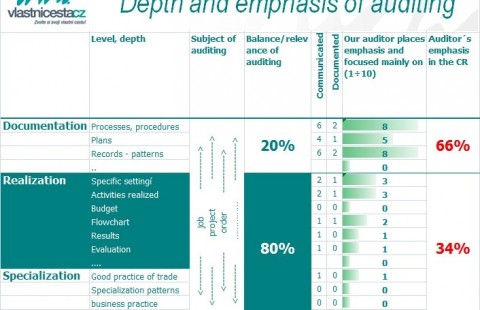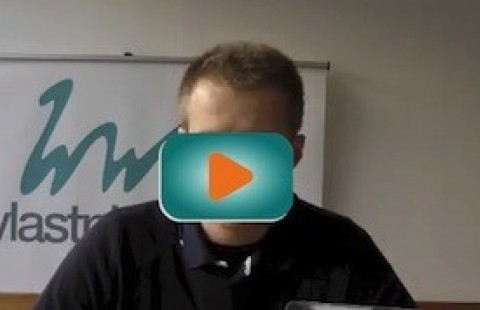An audit of quality is not just about how familiar one is with all those paragraphs of a specific standard, but, mainly, about communication, collaboration and an added value it will bring the company. The story of fiasco is a travesty of audit situations which you may, or may not, experience for yourselves.
Audit commencement
Mr Enthusiastic and Mr Abuse brought in The Passenger to an audit. By way of introduction, they were greeted by The Decorative Owner who introduced The Cheap Manager, his deputy, and Mr Backlog. Instantly, they were all interested in „resolving“ everything quickly, without any troubles, and getting it done void of disagreements. Surely we do our best at work. Following the decorative opening, the auditors were left with only The Cheap Manager. They learned nothing new in the first 5 questions, apart from the organization´s chart and the deputy of The Cheap Manager. Luckily, one of them was The Experienced Manager, and the auditors acquired their first answers.
Audit process
Mr Abuse put a straightforward question concerning a fault he knew was in the process where his friend was working. That friend is really female, sorry. Unfortunately, it is common knowledge here, they make lunches together on a daily basis. Driven by a strong desire for a „finding“, he made the issue slightly more complicated. Mr Enthusiastic readily got down to explaining the heart of the matter. After a 10-minute monologue, The Experienced Manager suggested a coffee break. The Cheap Manager adopted a purple coloring and was about to communicate who - in reality - was pulling the auditing strings, putting all the blame on the female sex. The Experienced Manager stopped him just in time, making a point that auditors are not managers, and so they have a real, genuine intent to make things better. Just look at Mr Enthusiastic, he is overflowing with good intentions, isn´t he?
The first wave of commotion subsided, and The Cheap Manager invited his subordinate so that he could deliver the latest facts concerning the problem that had been brought forward by Mr Abuse. Yes, the problem was not resolved, notwithstanding the fact a nominated team had met because of the problem in the last six months. It was not resolved; yes, very true.
Then, at one moment, Mr Backlog rushed in and asked how he could oblige the auditors. No sooner had Mr Enthusiastic been able to say anything than The Passenger shook his head and Mr Backlog was away.
The Passenger kept looking around, demanding the document numbers an their approval in writing, which was exactly the thing that was getting The Experienced Manager´s goat. Indeed, the quality is not just about whether or not there is a signature somewhere, which can be put right anytime, so he asked The Passenger where, according to him, rested the core quality of the audited process. The Passenger replied it rested in accurracy and, in particular, the proper documentation. The Experienced Manager realized any ensuing discussion would become a lecture on the red tape, ending it hastily. He himself suggested to move ahead to the point of process assessment. Everybody agreed, as they had been delayed enough already. Checking on the results submitted, Mr Enthusiastic discovered some decreasing trends. "The Experienced Manager .[color2]" confirmed such trends, yet, for that moment, he had no knowledge about what was causing them. Mr Enthusiastic put forward an analysis with which they agreed and offered it as an opportunity for improvement. The work day was coming to an end, and the audit team met in chambers to prepare a preliminary report. Mr Enthusiastic kept suggesting one conclusion after another, with Mr Abuse interrupting him saying that he was right that they had been covering problems up. The Passenger, meanwhile, was perfecting the document numbers where there were some formal errors.

The Real | Interim Manager for Your Changes

Manager work model

Time management - making use of time effectively
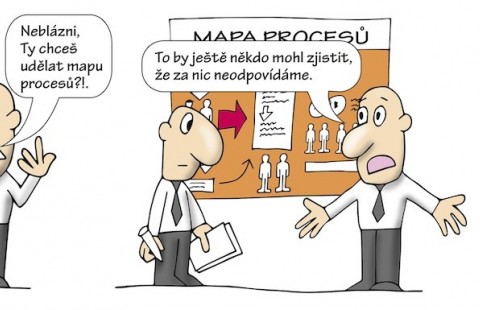
Jak správně tvořit mapu procesů

Modelling and setting the processes and procedures - ISO 9001

Training - preparation of the SWOT analysis and strategy
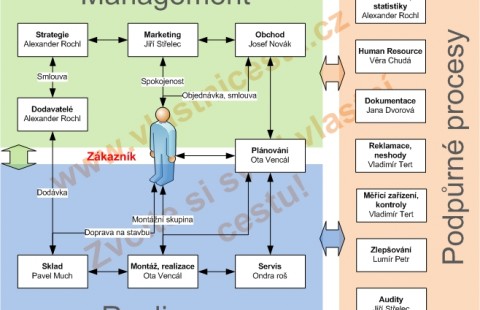
Company Management System of Quality Step by Step - ISO 9001
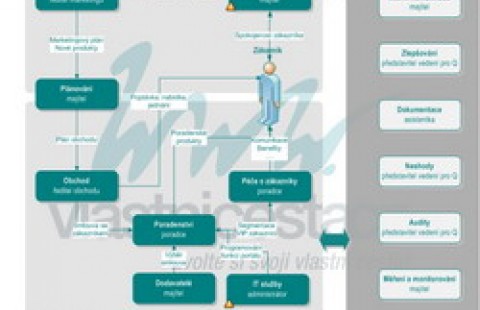
Process map acc ISO 9001 - business offer

IT staff communication
Final negotiation
In conclusion, Mr Enthusiastic vehemently presented the evidence compiled by Mr Abuse.The Decorative Owner played everything down and informed that he saw no added value in the auditors´ work. Let them come to think of their work! His conclusions were shared by The Cheap Manager who pointed out that the deficiencies found were of old and his people had been working on them for some time. Also, in his view, it was not right for the auditors to carry the old deficiencies over from production to the audit report. Clearly, they do know best for themselves how to cope with problems and they do it. Fortunately, The Experienced Manager imposed himself to the final meeting and added: „The auditors have been trying to discover, and they have indeed discovered, further new deficiencies that are worth mentioning and scrutinizing, for it is where the company might be losing money. The decreasing trend is really beginning to show in the bottom line result.“ He proposed that the audit team examine those deficiencies post facto and have the management consider them. This proposal met with universal approval. Only The Passenger, as he was saying good-bye, remarked all this was only making things last even longer.
PS: can you describe the characteristics of the auditors and the audited?


